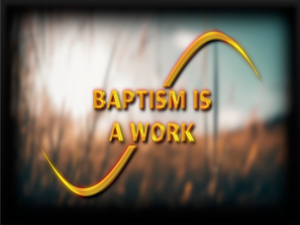
Romans 10:9-10
That if you confess with your mouth, “Jesus is Lord,” and believe in your heart that God raised him from the dead, you will be saved. For it is with your heart that you believe and are justified, and it is with your mouth that you confess and are saved.
Wow! There is quite a bit of great information in this amazing scripture but baptism is not here.
This scripture identifies two of the five steps in the Biblical Plan of Salvation, confession and belief. Confession happens with the mouth and belief occurs in the heart.
The thing we must believe is that Jesus rose from the dead. No-one would do this if they did not believe in Jesus and they would not believe in Jesus if they had not been told about him by an evangelistic disciple. This means that everyone who makes the confession, “Jesus is Lord,” has heard the message and accepted the message which are the first two steps in the Biblical Plan of Salvation. But there is more…
There is a process.
When we accept the message, it means we are agreeing with what someone has taught us about Jesus… specifically that he died for our sins and was risen by God to life again. We are taught that if we want to be free from our sins and enjoy eternity in heaven, we should put our faith and trust in the work Jesus did, on our behalf, at the Cross. We are taught that He paid the price for our sin and there is nothing we can do to earn or merit the free gift of eternal life. This is the Gospel.
Click here to read the rest of this post.Podcast: Play in new window | Download (Duration: 4:25 — 3.0MB) | Embed









